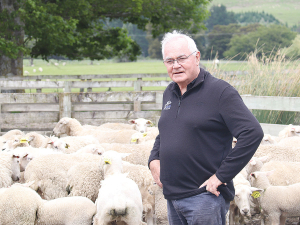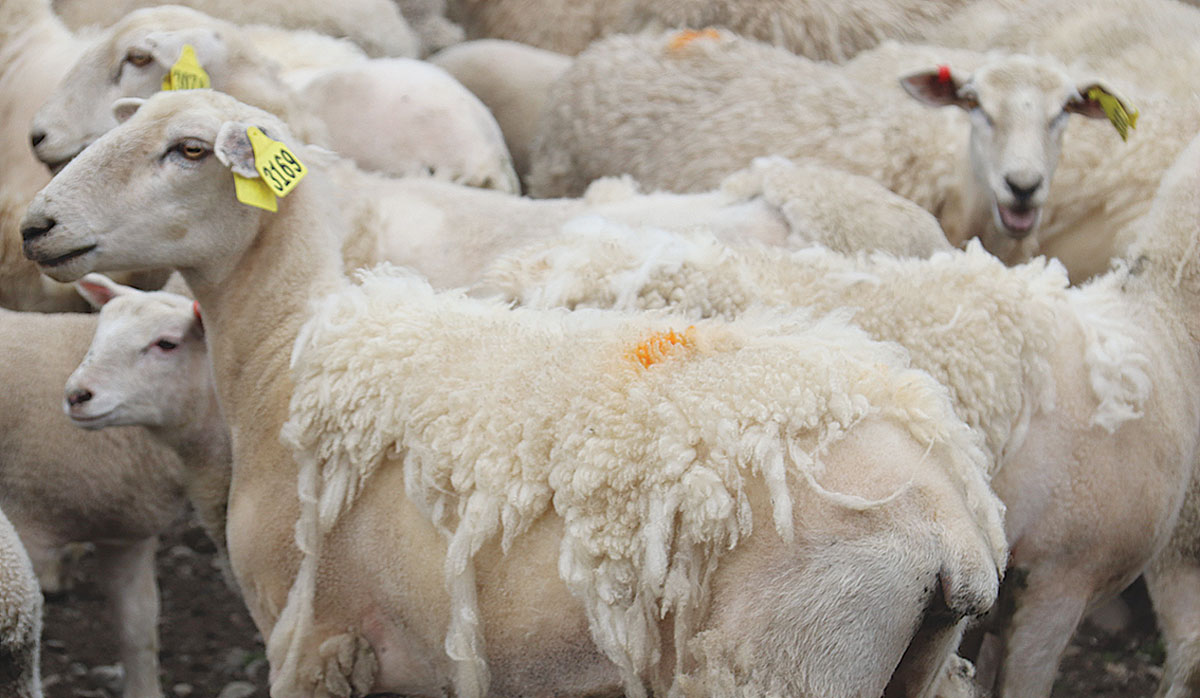NZ Catchment Groups Thrive with ‘Source to Sea’ Approach
The most successful catchment groups in NZ are those that have 'a source to sea' approach.
 Professor Steve Morris says the key purpose of the trial is to get quantifiable data on the impacts of breeding a self-shedding Wiltshire flock.
Professor Steve Morris says the key purpose of the trial is to get quantifiable data on the impacts of breeding a self-shedding Wiltshire flock.
With low wool prices, farmer interest in the self-shedding Wiltshire sheep continues to grow.
This was manifest by the large turnout at a recent field day held at Massey University’s Riverside Research farm in the Wairarapa where trials are being done to quantify the benefits and costs of breeding up a self-shedding Wiltshire flock.
Heading up the six-year trial is Professor Steve Morris who says he was very happy with the turnout for the day, and ongoing interest in the trial – now in its fourth year.
He says the key purpose is to get quantifiable data on the impacts of breeding a Wiltshire flock.
The trial involves crossing Romney ewes with a Wiltshire ram and continuing this process until the resulting progeny are fifteen sixteenths, at which point they are classed as pure Wiltshires.
He says getting funding for the sixyear research programme has not been easy given the fact that people want answers tomorrow, if not yesterday. But he says the way the trial is working out, there will be a ready supply of hard data to give serious options for farmers who are getting little or nothing for their wool.
He says on a North Island hill country class four property, the income from wool is 3% or less.
“If you’re a farmer with say 4000 ewes and your wool shed is deteriorating, there is a question mark about whether it is economic to build a new one, given the money they are getting for their wool. The cost of labour and finding it in rural areas is also a factor, especially if the tasks are dagging, dipping and shearing,” says Morris.
As well as the self-shedding aspect, the trial is looking at all other aspects of the Wiltshire such as its reproductive performance, lambing and its carcass yield. To date there is little difference in liveweights in any of the crosses, and reproductive performance was not lower in Wiltshire crosses (and there is some evidence of increased lamb survival).
Data shows the need to wait to late January to do shedding score in lambs with increased shedding in 3/4 and 7/8 cross, as expected. Morris notes that their preliminary data indicates that Wiltshire-cross lambs were able to produce equal amounts of meat of similar quality to Romney lambs and had higher dressing out percentages.
 |
|---|
|
The trial involves crossing Romney ewes with a Wiltshire ram. |
“I would make the comment that if the performance of these Wiltshire is same as other sheep on farms, that’s fine. From what we have deduced so far, the flock performance of the sheep, in terms of reproduction, growth rate, carcass conformation, is as good and in some cases better that other flocks.”
Morris says at the field days there were farmers who had been breeding Wiltshire for many years, others who had been doing so for a few years, and then there are those who are just starting to get interested. The trial is funded by L. A. Alexander Trust, the Massey Foundation and the Sydney Campbell Trust through to the end of 2026.
Former Fonterra executive Alex Turnbull has been appointed CEO to lead all five Yili Oceania Business Division companies in New Zealand.
Fonterra executive René Dedoncker is leaving the co-operative later this year to lead Australian agribusiness Elders.
Alliance Group and the Southland Stags rugby team have joined forces in a partnership that will see the the meat co-operative's farmgate brand feature on players' team kits and replica jerseys.
Fonterra's plan to expand its organic programme to the South Island is being well received by farmers, the co-op says.
Voting has started for the renewal of DairyNZ's milksolids levy.
The most successful catchment groups in NZ are those that have 'a source to sea' approach.

OPINION: Here w go: the election date is set for November 7 and the politicians are out of the gate…
OPINION: ECan data was released a few days ago showing Canterbury farmers have made “giant strides on environmental performance”.